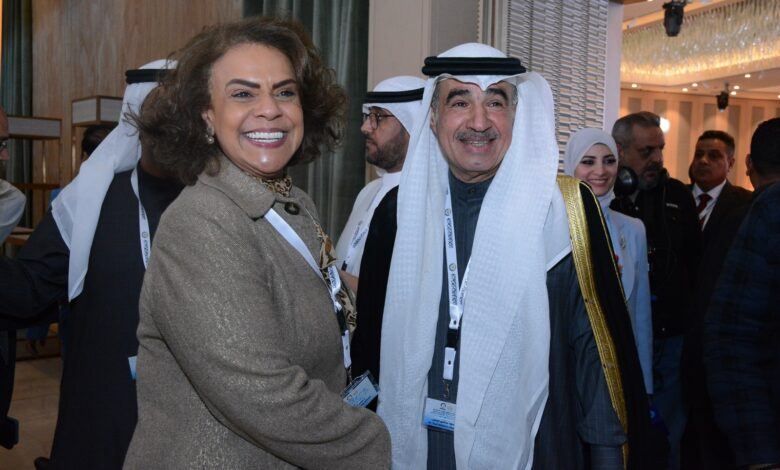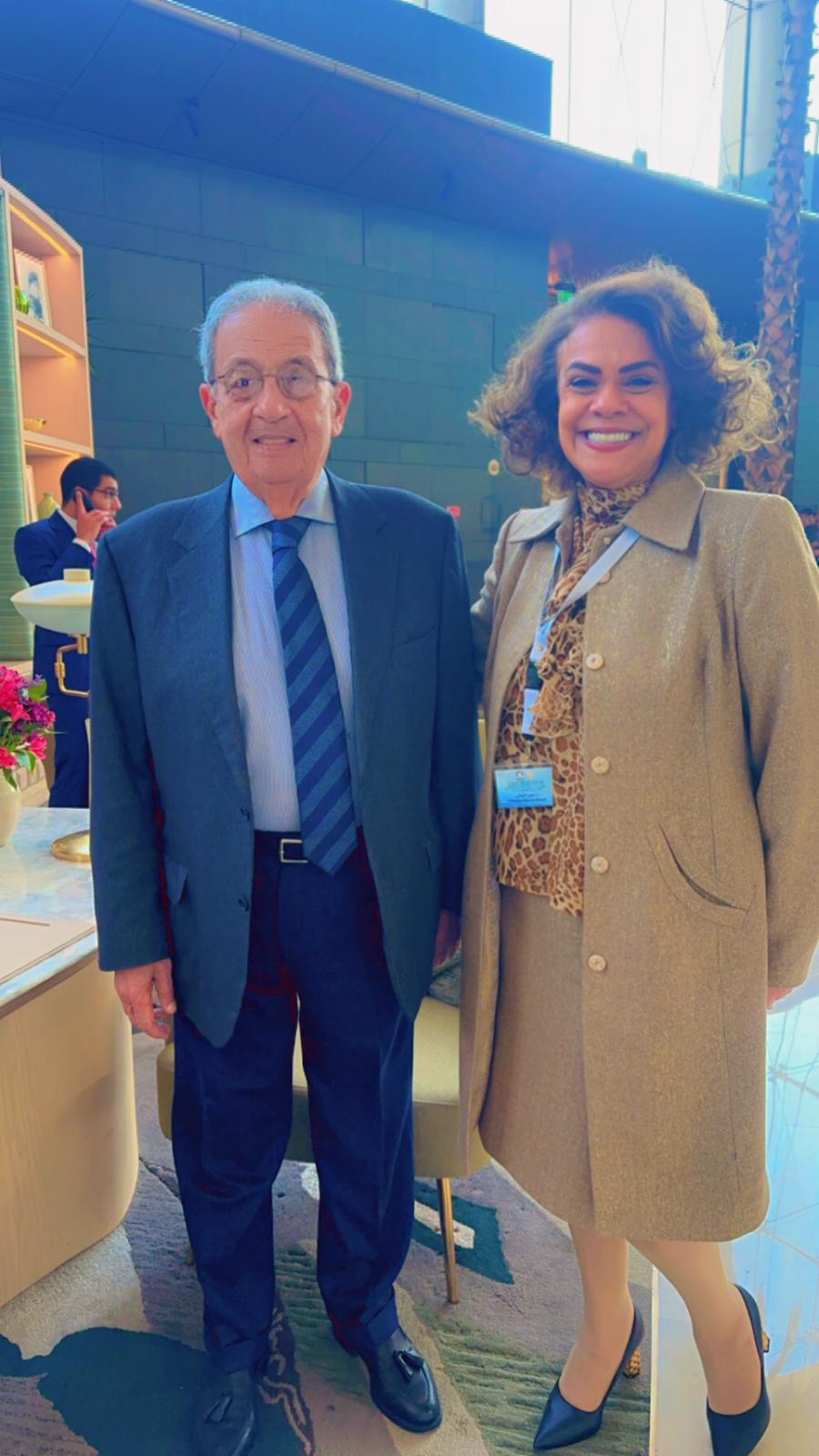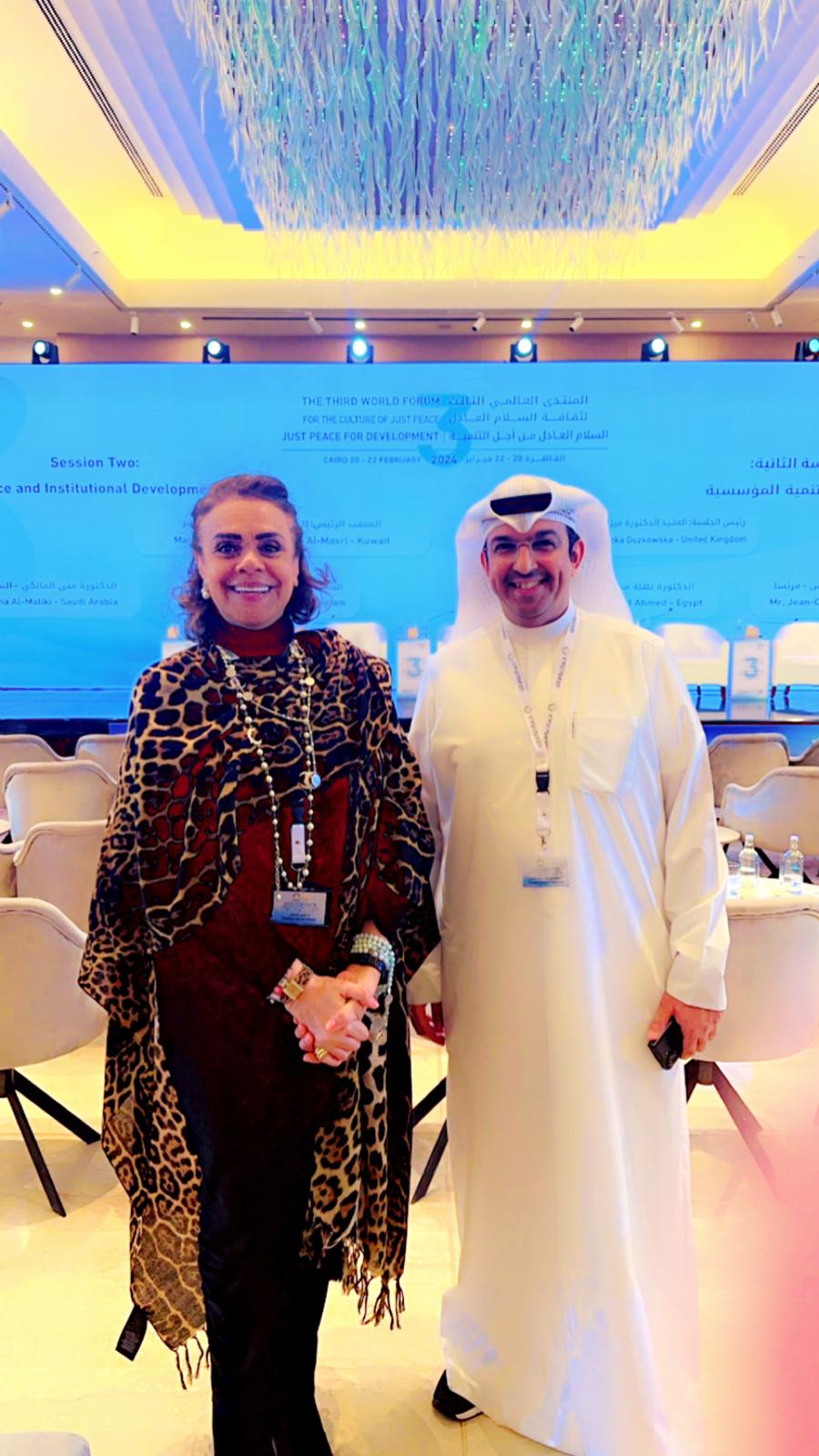
The Third World Forum for the Culture of Just Peace recently launched in Cairo, from February 20-22.
It was organized by the Abdul Aziz Saud Al-Babtain Cultural Foundation, in cooperation with the Egyptian Ministry of Culture represented by the Supreme Council of Culture under the patronage of Egyptian President Abdel Fattah al-Sisi.
The forum kicked off with a distinguished plethora of leaders, intellectuals, thinkers, and cultural figures from across the globe, accompanied by those that came at the kind invitation of the Abdul Aziz Saud Al-Babtain Cultural Foundation to participate in the event.
I view each of these prominent intellectuals as akin to walking encyclopedias, boasting an enormous amount of scientific and practical achievements.
My goal with this article is to the highlight the sessions and papers presented by researchers and speakers during the event – but before I do so, I want to thank the Abdulaziz Saud Al-Babtain Cultural Foundation for its organization of the event, and the good reception, as is common with the family of the late eminent Kuwait poet and businessman Abdulaziz Saud Al-Babtain.
I also thank Kinana for hosting the forum, and I pay a tribute of respect to the man of peace himself, President Abdel Fattah al-Sisi for his generous sponsorship of the Just Peace Culture Forum.
- Peace and Political Development
The forum launched with the start of the its sessions. The first seminar discussed the topic of “Peace and Political Development”, which was divided into two parts:
The first segment discussed “Government Administration Competencies and Development.” The interlocutors and speakers were Sir Tony Baldry from England and Dr. Muhammad al-Rumaihi from Kuwait, who provided many suggestions and highlights on how and what are the solutions of political systems can provide for promoting peace.
The symposium that unfolded featured several eye-opening methodologies, alongside suggesting a variety of mechanisms that call for and examine how to develop politics for the sake of just peace.
The titular “Peace and Political Development” session, entitled “Popular Participation and Development,” featured Dr. Arbin CC from Albania and Dr. Moataz Salama from Egypt as speakers.
This session brought with it quite the distinguished array of discussions, the most significant involving the extent of the impact of popular participation in achieving peace, the importance of a culture of peace to society, and how vital the participation of society is towards attaining just peace.
- Peace and Institutional development
The second session involved discussions on peace and institutional development. It followed the format of the prior sessions, with the topic being divided into two parts.
The first segment highlighted institution building and its role in consolidating development – keynote Speakers were Jean Christophe Bas from France and Dr. Nihad Mahmoud from Egypt.
The second part encompassed other brilliant speakers, namely Ambassador James Watt from England and Dr. Mona Al-Maliki from Saudi Arabia, who touched upon the role of non-governmental organizations in development.
- Peace and Social development
On the next day, Wednesday, February 21, the third session of the forum tackled peace and social development, once more divided into two parts:
The first segment was hosted by Dr. Gilda Hoza from Albania and Dr. Nevin Massad from Egypt, who jointly stressed the importance of involving women, youth and minorities into society.
The second part highlighted the direction of development programs for Health, Education, and Urbanization by speakers Dr. Gordon Sammut from Malta and Dr. Anas Bouhlal from Finland.
- Peace and Cultural Development
The second day of the Just Peace forum concluded with its fourth session, which was entitled “Peace and Cultural Development”.
It follow the course of previous sessions, with research in presentation and discussion through two parts.
The first section addressed the dialectic of heritage and modernization, held by Dr. Carsten Schwerb from Malta and Mr. Zuhair Tawfiq from Jordan.
Dr. Khan Pedro from Spain and Mr. Abdul-Ilah Belqziz from Morocco then shed light on the problem of the national state concept for the second part of the session.
- In closing
On Thursday, February 22 the closing session of the Third World Forum for the Culture of Just Peace was held along with the forum’s recommendations.
The final session discussed peace and economic development, within the contest of the free market and socialist markets. Its speakers were Dr. Julius Sein from England, Amer Al-Tamimi from Kuwait, Dr. Anastas Angjeli and Dr. Nevila Rama from Albania.
Though the forum wrapped up a few days ago, its words continue to still ring out – lighting the sky of the world with the culture of just peace.

Author’s biography
Nermine al-Houti is an associate professor of the Department of Criticism at the Higher Institute of Dramatic Arts in Kuwait.
She holds a PhD in Philosophy of Literary Criticism and is a graduate of the Higher Institute of Dramatic Arts.
Houti is a member of the Association of Writers and the Journalists Association, and is also part of the literary arbitration committees on theater or poetry in Kuwait and other Arab countries.
She has authored numerous newspapers and magazines articles and several books on significant theatrical works examining women’s issues, the latest of which is “The Women in Ismail Abdullah’s Theater”.
She has been chosen as a panelist in various significant cultural events and has participated in multiple seminars across the Arab region.





